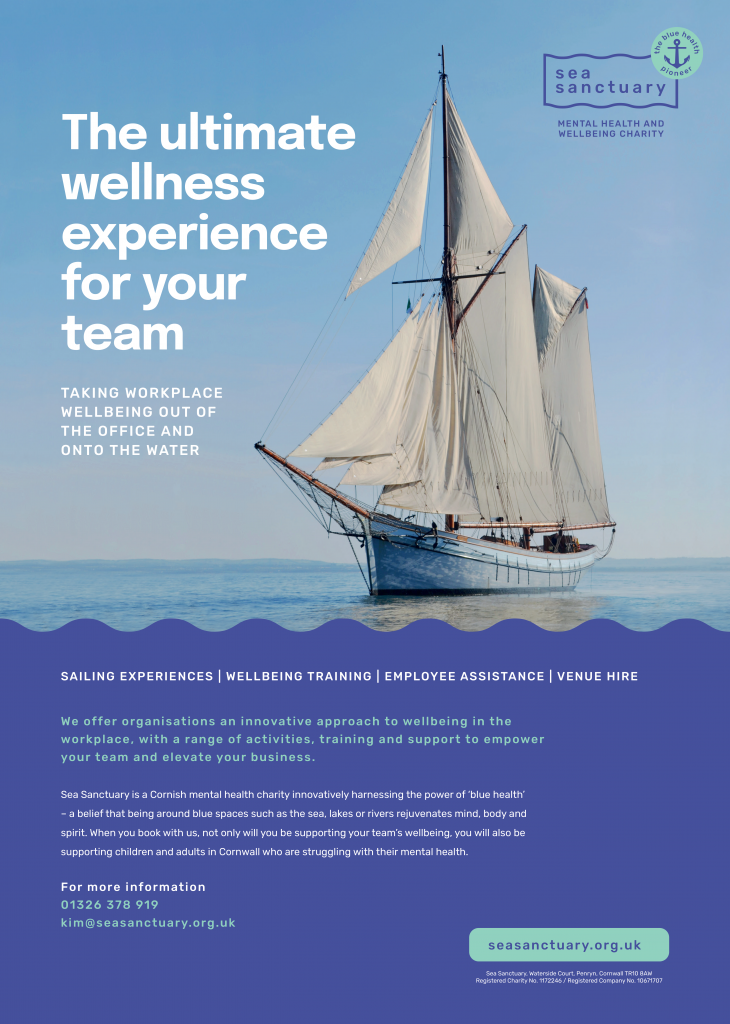When was the last time you checked in with yourself and asked, ‘how am I?’
We can easily become weighed down with our workload, feel under pressure to meet deadlines, spend our days managing our teams, get completely caught up in the cycle of working 9-5 (or longer), and then without realising, we’re at the point of burnout!
The thing is, we often don’t appreciate how important our wellbeing is until the damage is done. We undervalue the very thing that’s most important of all.
What’s more, as businesspeople, leaders, and mentors, we should be setting an example of how important workplace wellbeing is; this needs to be recognised across an organisation so that the workforce is made up of happier and more productive team members.
The Mental Health Pandemic
The impact of the pandemic on mental health isn’t likely to resolve itself anytime soon. Covid has further deteriorated the mental health of those who were already suffering, as well as bringing to the surface issues for many people who had never considered themselves to have mental ill-health before.
In fact, the World Health Organisation believes that in the first year of the pandemic, the global prevalence of anxiety and depression surged by 25% – this was linked to a plethora of factors including isolation, fear, grief, and financial concerns.
Furthermore, the BMJ medical journal has stated that in 2021 alone, there were 4.3 million mental health referrals in England. And with the NHS under immense pressure, waiting times for mental health care have increased substantially.
Where Are The Resources?
Even before the pandemic, it was thought that one in four UK adults was suffering from a mental health problem. This means when you ask someone how they are, the answer you receive could be far from the truth.
If the stressors for people have increased over the past few years, but the resources are harder to access, it means that even more of the people we brush shoulders with every day are likely to be struggling.
They might be the employee who smiles and makes small talk while brewing coffee, a co-worker who diligently takes notes in a meeting, or a leader at the very top.
Mental health problems can often seem invisible from the outside, and due to greater awareness in recent years, the welfare of employees has perhaps never been a more important business consideration.
Speaking Up About Mental Health
From a business mindset, workplace wellbeing is important to an organisation for several reasons.
Firstly, workers feel more appreciated when their employers take an interest in supporting their mental health, and having clear wellbeing initiatives in place can help attract talent.
Furthermore, when workers are happier, they’re also more productive, take fewer sick days, spend less time struggling to get through the day, and feel more inspired during their working hours.
Fostering a culture that values workplace wellbeing is an important place to start. Company leaders can establish this with regular check-ins, dedicated Employee Assistance Programmes, and specific initiatives that look after their teams.
The Blurred Lines Of Working From Home
Covid has likely changed the life of workers forever.
During the lockdowns, those that could work from home did, and Zoom meetings in comfy clothes with friendly colleagues soon became the new socialising after work.
Personal connection may have been limited, but the freedom for people to be able to work from home has been life-changing for many.
However, the difficulty with working from home comes when trying to draw the line between work life and home life. It’s easy to put in extra work hours while at home, so ensuring your employees are keeping a healthy balance is important.
Small tips like leaving ‘work’ by taking a walk around the block when you finish for the day, and then returning ‘home’ when you come back in, can help separate the two.
Having a dedicated area or space in your home that’s only used for work can be another way to help. Putting your laptop away somewhere you can’t just stumble across it and end up checking your emails in the early hours of the morning, is another.
Making the effort to educate your employees about simple boundaries and habits can help their flexible or remote working routines to be much easier on the mind.
Saying ‘No’
When many people struggled with uncertainty around their job’s future during the repeated lockdowns, they started saying ‘yes’ to more work, and perhaps to more hours too. This pushed many to burn out quicker.
Having regular meetings with employees can help to establish their workload and priorities, alleviate any pressure they may be feeling, and empower them to say ‘no’ when they don’t have the capacity for extra work.
As business leaders, it can be a powerful thing to remind an employee that they’re only human, ask them to check how they are throughout the day, and pay attention to what they need – this might be the chance for them to reach out for help.
Also, having Employee Assistance Programmes in place will mean you don’t need to be a mental health expert, and that your employees will have the support to deal with stressors both at home and at the office, available whenever they need it.
For organisations that want to retain their employees and build a culture which values mental wellbeing, positively impacting the workplace can be as easy as leaders reminding their team members to regularly take stock and check in with themselves, letting them know that support is available if needed, and simply taking the time to ask how they are.
Article by Ashleigh Fox for Sea Sanctuary



